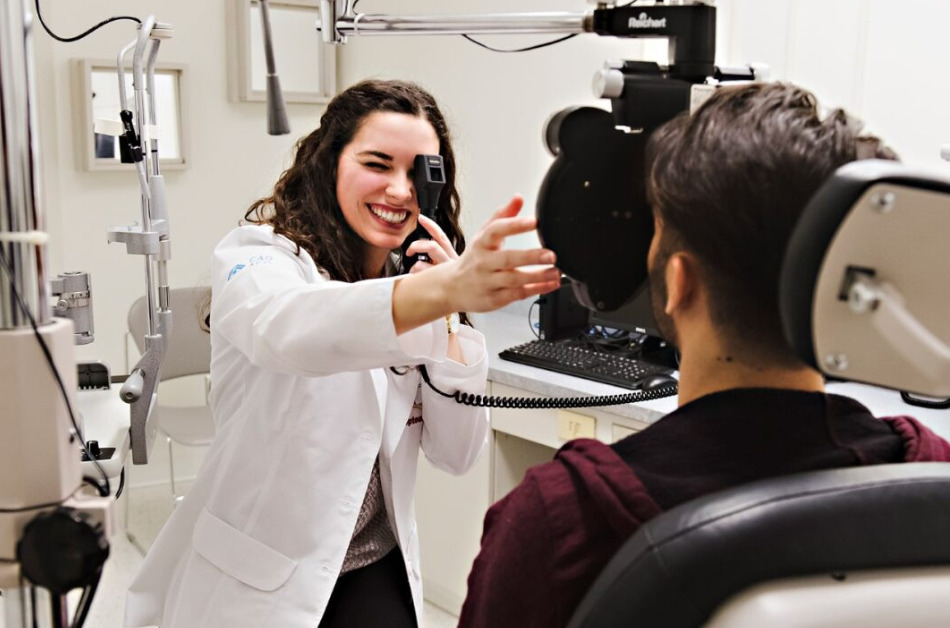Statistics show that neurodivergent and autistic people have higher rates of visual impairment and sight-threatening disease than neurotypical people. Yet due to the lack of accessibility in receiving eye care services, less than half receive eye exams – and even fewer follow through with recommended treatment.
Thanks to the support of the Azrieli Foundation, that’s about to change.
The University of Waterloo School of Optometry and Vision Science has teamed up with Toronto’s Surrey Place (which provides services and support for people with developmental and intellectual disabilities) to launch its first barrier-free vision care clinic: the Waterloo Eye Institute at Surrey Place.
“Neglecting vision care has broad implications,” says Lindsay Hillier, Manager of Training and Development, Blind-Low Vision Early Intervention Program at Surrey Place. “Assumptions related to cognitive abilities, behaviour issues and fine motor skills are often made without knowing if poor vision is having an impact and, if corrected, would change the results.”
With this exceptional new clinic, optometry students and residents will gain advanced clinical experience, and clients will receive vision screening diagnoses and treatment.
“We are providing vision care in a comfortable and familiar space to the patient,” says Dr. Lisa Christian, Associate Director for Clinical Education at the University of Waterloo, Canada’s only English-speaking school of optometry. “This provides an opportunity for enhanced inter-professional collaboration with other healthcare practitioners and improved health outcomes for the patient.”
With a three-year grant from the Azrieli Foundation, patients will be able to visit the clinic as early as late fall or early winter 2023.
“Our goal is for the clinic’s benefits to spread across Canada,” says Hillier. “Small shifts in training, knowledge and awareness would place optometry well to meet the challenges of this specialized area of eye care.”





